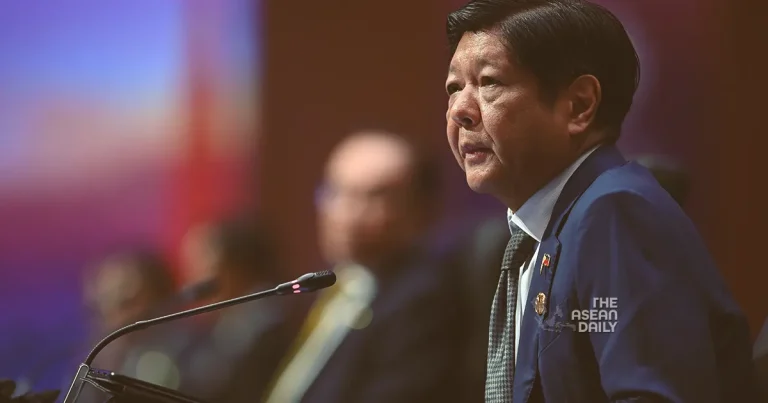6-9-2023 (MANILA) President Ferdinand “Bongbong” Marcos Jr. has challenged the prevailing narrative that simplifies the complexities of South China Sea disputes to a mere contest between two influential nations. Speaking during the retreat session of the 43rd Association of Southeast Asian Nations (ASEAN) summit in Jakarta, Indonesia, Marcos asserted the Philippines’ commitment to rejecting misleading narratives.
In his address, Marcos did not explicitly name the “powerful countries” involved in the South China Sea disputes. However, it is evident that his remarks alluded to the ongoing rivalry between the United States and China in the region.
China lays territorial claim to a significant portion of the South China Sea, including areas known to the Philippines as the West Philippine Sea, despite an arbitration ruling in 2016 that invalidated its legal basis for such claims. China’s assertion of historical sovereignty also overlaps with the exclusive economic zones of Vietnam, Malaysia, Brunei, and Indonesia.
In response to China’s territorial claims, the United States has intensified its military presence in the region, providing support to Southeast Asian partners like the Philippines. This escalation has given rise to concerns regarding regional peace and stability.
President Marcos called upon all parties involved to exercise self-restraint, particularly in activities that could exacerbate tensions in the South China Sea. He emphasized the importance of upholding regional peace, stability, and security.
The recent incident involving Chinese coast guard vessels firing water cannons and blocking a Philippine resupply mission to Ayungin Shoal further highlights the contentious nature of the situation. This incident, which drew condemnation from Philippine allies, underscored the need for peaceful resolution mechanisms.
President Marcos acknowledged that the vision of the South China Sea as a “sea of peace, stability, and prosperity” remains elusive. Nevertheless, he affirmed the Philippines’ commitment to working with other nations to foster a rules-based international order. The nation will also continue to assert its freedom of navigation and overflight in the South China Sea.
Marcos sought support from fellow Southeast Asian leaders for the implementation of guidelines for maritime interaction proposed by the ASEAN Defense Ministers’ Meeting. Additionally, he warned against “hegemonic” ambitions in the South China Sea, expressing concerns about escalating tensions and the potential for miscalculations that could have severe consequences for the entire region.




